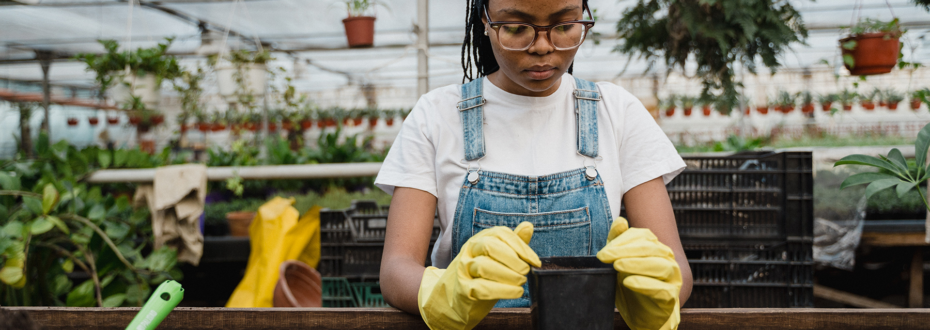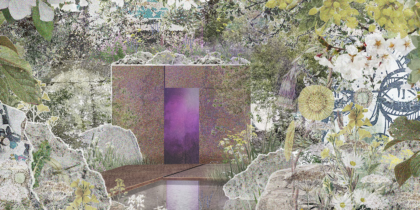How does an international flower show visited by thousands of people relate to our work fighting for social justice and equality in mental health?
As it turns out, quite a lot, actually.
In recent years, much has been said about the relationship between gardening, nature and mental health. Multiple studies have found links between being in nature and better mental health outcomes, including reduced stress and greater feelings of wellbeing.
This is where the narrative often fizzles outs. But as an organisation relentless in its pursuit of social justice in mental health, it can’t be where our conversation ends. With one in eight households having no access to a garden (and the rates higher in urban areas and among racialised communities), it quickly becomes apparent that the conversation about gardening and mental health has been limited to the confines of people who can afford it.
This is where our work at the Centre comes in. We know that people living in deprived urban areas are more likely to struggle with poor mental health, often exacerbated by poverty, discrimination, poor housing and higher unemployment. These same people are less likely to have access to green spaces, gardens or the natural environment.
Wider still, people from racialised communities have 11 times less access to green space, and are thought to make up just 1% of visitors to national parks.
Alongside this, climate change and the cost of living crisis are taking a toll on our mental health, and disproportionately impacting more disadvantaged communities. People who need connection with nature most of all are least able to access it.
This year, we’ll be partnering with Wild City Studio (an award-winning garden design team) and supported by Project Giving Back to create an inclusive, accessible community garden. Centre for Mental Health’s The Balance Garden will show how urban communities can reclaim spaces as climate resilient gardens which bring healing and hope. The garden demonstrates affordable ways of connecting with nature and growing food in a healthy space for everyone to enjoy.
Critical to our work on this is The Balance’s legacy after the RHS Chelsea Flower Show. It will be moved to Tottenham in the London borough of Haringey, which has high levels of deprivation and depression. Relocating the garden to Markfield Park will create a new space for the community, ensuring that the benefits of being surrounded in nature can boost mental health for all.
In all of our work, we highlight that mental health is made in communities. We want to shift the narrative from seeing mental health and mental illness as something that happens to individuals in a vacuum, irrespective of what’s going on around them. The Balance reiterates what research has shown time and again: that our mental health is affected by our social and economic circumstances and the physical environment around us.
Our vision is that we can extend the conversation beyond the individual benefits of nature and gardens to our mental health, and begin to dismantle the barriers that prevent people and communities from reaping the benefits of connecting with nature.
If you’re passionate about the potential of gardens and nature to boost the mental health of all, stay tuned for updates on our Chelsea garden and how to get involved in reclaiming urban spaces for communities.






